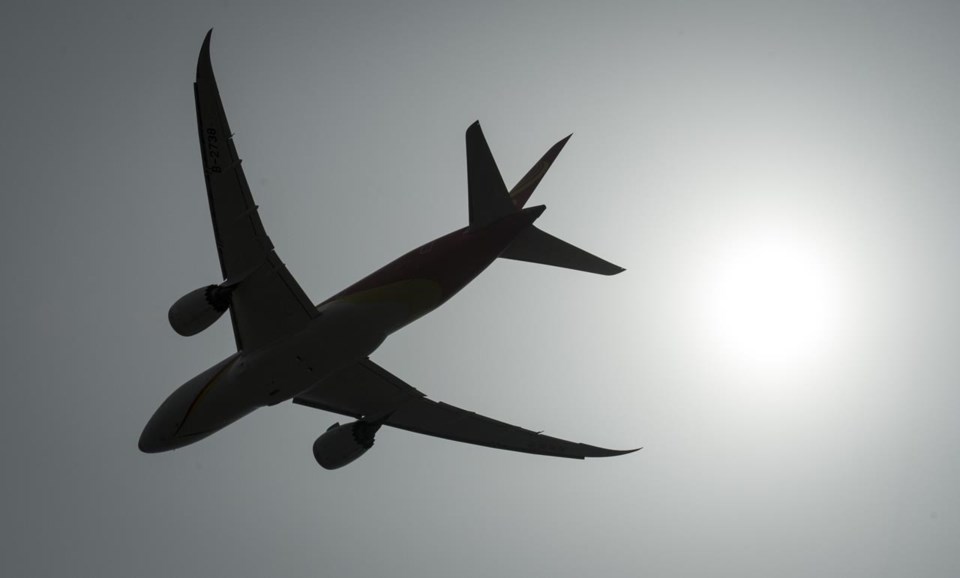Pilots Speak Out Against Aviation Industry Push for Single-Crew Cockpit
Key Highlights :

Montreal, Canada – Pilots from around the world have expressed their opposition to an aviation industry push to have a single crew member in the cockpit. At a news conference in Montreal, leaders of three of the world’s largest pilot unions representing more than 150,000 workers said a proposal to Europe’s aviation regulator aims to boost airline profits at the expense of safety.
The European Union Aviation Safety Agency is considering a pitch by plane makers Airbus and Dassault Aviation for some aircraft to be crewed by just one pilot for part of the flight—though not during takeoff and landing—by 2027. Currently, two pilots are required at the flight deck throughout the trip.
Jack Netskar, president of the International Federation of Air Line Pilots’ Associations, which includes some 6,200 Canadians, said the proposal would create an “unacceptable” safety risk for passengers. “There is no replacement for the skills and experience of at least two pilots at the controls of the flight deck at all times,” he said Thursday.
Some manufacturers frame single-person flying as a solution to labour shortages and pilot fatigue, said European Cockpit Association president Otjan de Bruijn, calling the characterization “misleading and inaccurate.” “It’s a gamble with safety,” he told reporters.
The concept—still years away from potential implementation—would see a flight from Paris to Montreal staffed by two pilots. One would head to the back of the plane to rest once it began to cruise, with the two pilots swapping places halfway through, and both in the cockpit for the first and last 45 minutes of the trip.
Union leaders said they aim to counter a lobbying campaign by the sector targeting regulators around the world, as well as the International Civil Aviation Organization. The Montreal-based United Nations agency’s governing body and air navigation commission were slated to weigh the topic further after two working papers were submitted last year, but no resolutions have been adopted, said spokesman Anthony Philbin.
Pilot unions say France-based plane producer Airbus is leading the drive toward “reduced-crew operations,” while North American airlines have been reluctant to jump on board. “It’s a sales pitch,” said Netskar. “There’s probably going to be airlines out there that find this viable—financially viable—and not considering the flight safety risk you’re entering into.”
Airbus and Dassault did not respond immediately to a request for comment. Boeing said in an emailed statement that it has “participated in industry discussions” but safety remains its priority, with any new technology serving to strengthen it. “Part of the reason the aviation system is as safe as it is today is because of what pilots do,” the company said.
Pilots from around the world are speaking out against the aviation industry’s push to have a single crew member in the cockpit. The proposal to have a single pilot for part of the flight is seen as a way to boost airline profits, but is seen as an unacceptable risk to passengers’ safety by the pilots. The proposal has been met with resistance by pilot unions and other organizations, who are pushing back against the idea.
The proposal is still years away from being implemented, but it has raised concerns among pilots and other safety advocates. The International Federation of Air Line Pilots’ Associations, which includes some 6,200 Canadians, has called the proposal an “unacceptable” risk to passenger safety. The European Cockpit Association president has also expressed concerns, calling the characterization “misleading and inaccurate.”
North American airlines have been reluctant to jump on board with the proposal, while France-based plane producer Airbus is leading the drive toward “reduced-crew operations.” Boeing has also participated in industry discussions, but safety remains its priority.
The International Civil Aviation Organization’s governing body and air navigation commission were slated to weigh the topic further after two working papers were submitted last year, but no resolutions have been adopted. Pilot unions are pushing back against the proposal and lobbying regulators around the world to reject the idea.
The aviation industry’s push to have a single crew member in the cockpit is a risky proposition that could put passengers’ safety at risk. Pilots from around the world are speaking out against the proposal, and organizations such as the International Federation of Air Line Pilots’ Associations and the European Cockpit Association are pushing back against the idea. North American airlines are reluctant to jump on board with the proposal, while Boeing is prioritizing safety over any new technology. The International Civil Aviation Organization is still considering the proposal, but no resolutions have been adopted yet.
